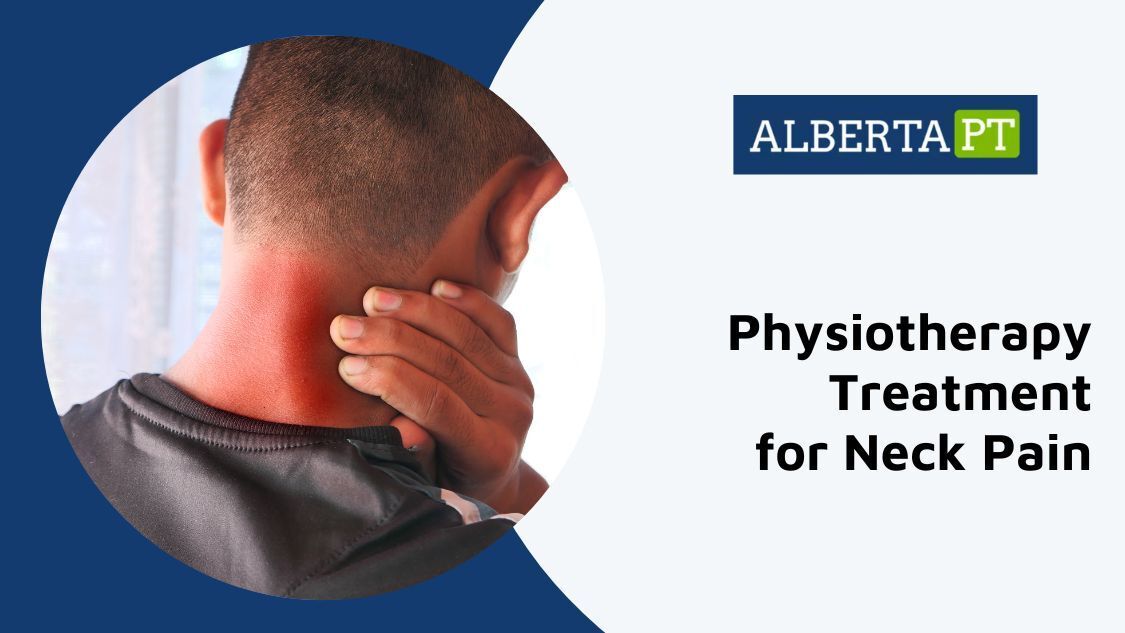
Neck pain is among the most typical types of discomfort that men and women endure. According to the Arthritis Foundation, nearly 70 percent of individuals will experience neck pain at some point in their lifetime. It occurs anytime the soft tissues in the neck suffer from common injuries, impacting your limited range of motion, impeding your daily activities and lowering the quality of your daily life.
Whether you're a white-collar worker that spends a number of hours a day stooped over a work desk, a jock that frequently has tense and stretched muscles from playing outdoors, or simply have bad posture, anybody can be prone to developing pain in their neck muscles periodically.
Nonetheless, with the assistance of a physiotherapist, you can get your neck pain controlled once and for all. With a wide variety of physiotherapy therapies for neck discomfort readily available, it's important to realize which treatments are perfect for your neck pain relief.Below we have summarized 4 different methods to help you get the best out of a physical rehabilitation session.
First, Ask Questions
Before you settle in for your therapy session, there are a few questions you should ask your physiotherapist to help you get the most out of your session. Ask about the private treatment strategy you'll be receiving, what combination of therapies might be used, and also about the length of time that you'll be projected to continue with the hands-on treatment approach.
Furthermore, make certain to inquire about any adverse effects that can occur from the different therapies, as well as what to do if there are any complications.
By asking these questions in advance, you can avoid any kind of misunderstandings or shocks later as well as guarantee that you're getting the most effective actual treatment possible for your needs.
It's additionally a good plan to know what to expect during your treatment. If you're being given myofascial release, as an example, you ought to understand the level of pressure that your physiotherapist is likely to use. Typically speaking, you should sense some stress during your treatment, however it shouldn't be extremely unpleasant.
Stretching Exercising With a Physio Therapist
There are various kinds of physiotherapy treatments for chronic neck pain, and among the most beneficial is stretching workouts. This type of physical therapy really helps to build up your muscles while also improving your flexibility and also general stance.
While it's not a therapy that can be done just once, stretching workouts are designed to be a lasting remedy to your neck discomfort. You can perform these exercises at home, or your physio therapist can suggest certain exercises that you can do while you're at work or on the go.
If you're dealing with neck discomfort because of poor posture or neck injury, stretching exercises can really help remedy your posture while likewise enhancing your overall health and wellness and health. By doing these exercises regularly, you can help stay clear of future bouts of neck pain and additionally boost your quality of life.
Warmth and Ice Treatment
While ice and heating therapy can be helpful for a wide range of injuries, they are especially invaluable for dealing with neck pain. Depending on the root cause of your pain, your physiotherapist might recommend that you make use of heat or cold. For instance, if your discomfort is caused by muscular tissue rigidity or swelling, using a cold pack might be recommended.
If your pain is caused by a pinched nerve, using a heat pack may be advised, because heat can help to loosen up your muscle mass and lower any kind of swelling in the area. Some individuals with recurring pain find that rotating between warmth and cold therapy at various intervals helps to keep their pain from escalating.
It is essential to talk to your physiotherapist about the benefits of each kind of treatment and when to make use of each one most successfully.
Ultrasounds or TENS Treatment
If you have been experiencing chronic pain for an extensive amount of time, your physiotherapist might recommend that you try a TENS therapy. This sort of treatment utilizes electrodes to deliver low-voltage electrical currents through your muscular tissues, which can help to relax them.
Depending upon your individual pain and where it lies, your physiotherapist may set the electrode pads on your back or your neck. While TENS therapies can be extremely effective, they're commonly used as a last option if various other sorts of treatment have failed to provide any kind of alleviation. By utilizing these treatments over a long term period, you can help to avoid future pain in your neck and enhance your general health and wellness.
Acupuncture
As you're coping with neck pain, acupuncture can help in reducing tension in your muscular tissues as well as boost your blood flow. While acupuncture is more generally utilized for persistent pain, it can also be utilized for more short-term pain.Acupuncture therapies (including dry needling) can be effective for all kinds of discomfort. Prior to trying these therapies, it is crucial that your physiotherapist identify what kind of neck pain you have, so that you can find the most suitable treatment together.
Wrap Up
Persistent neck pain can feel incapacitating, but the good news is there are various types of physical rehabilitation treatments readily available that can soothe your discomfort. By speaking with a physiotherapist and explaining your pain, they can endorse a treatment plan that's right for your symptoms.
Depending on the type of pain that you're dealing with, your physio therapist can suggest therapies such as extending exercises, heat and cold therapy, acupuncture, TENS treatments, and even more. With the help of a physio therapist, you can ultimately put an ending to your neck pain once and for all.
Contact the experienced physiotherapists at Alberta PT today and we can start eliminating your neck discomfort and helping you get back to your active life. Now scheduling new appointments!
.jpg)





